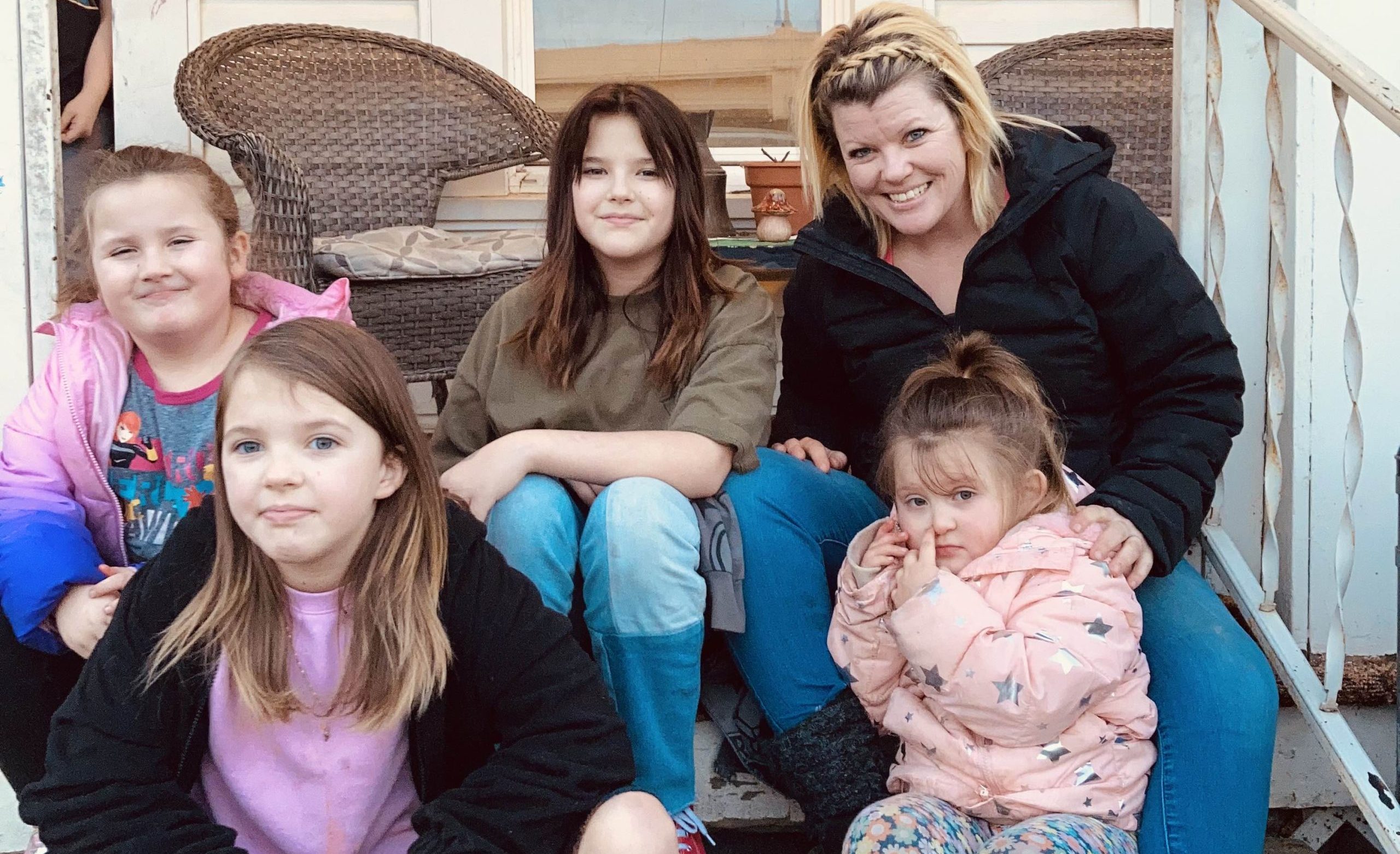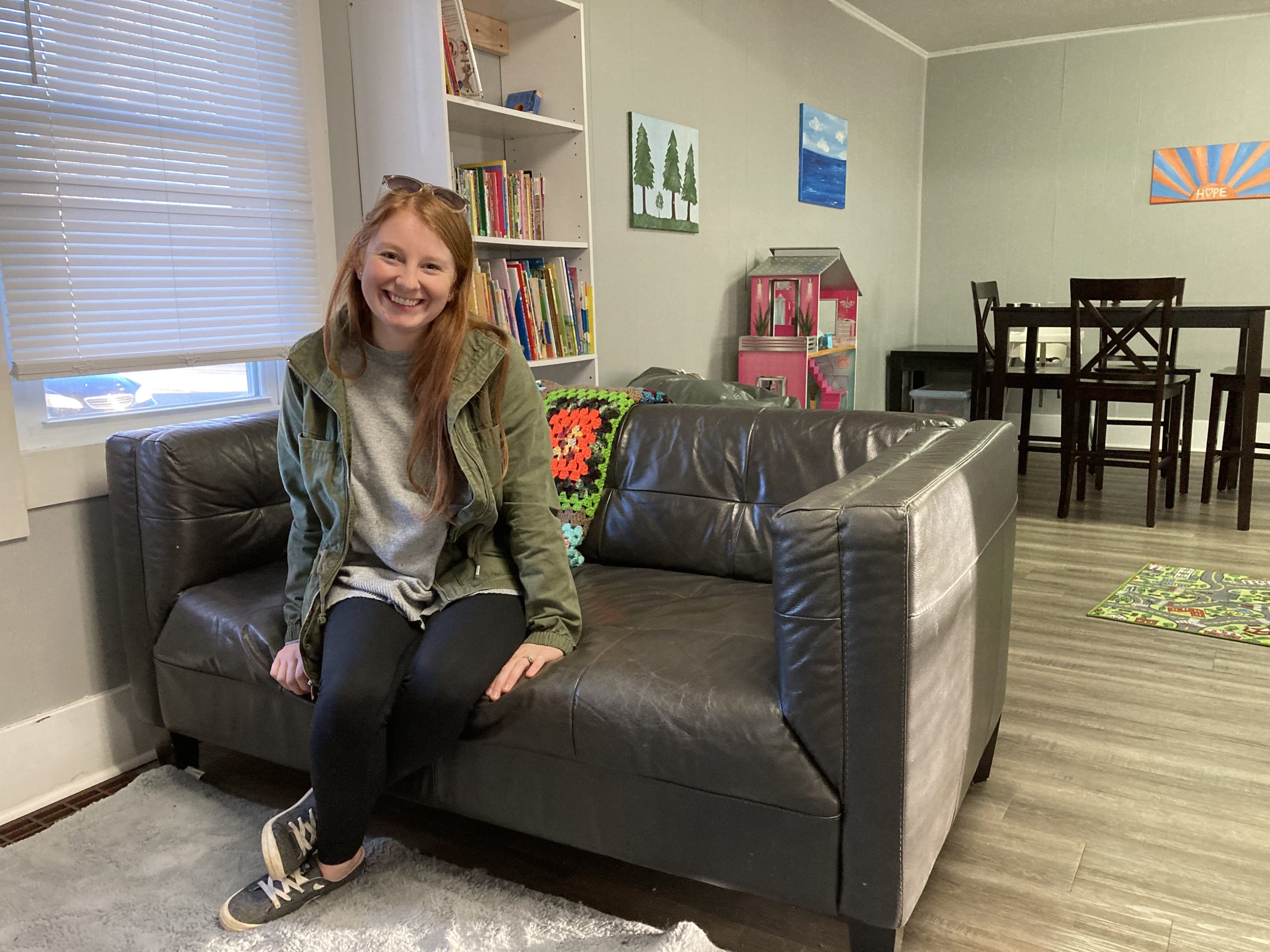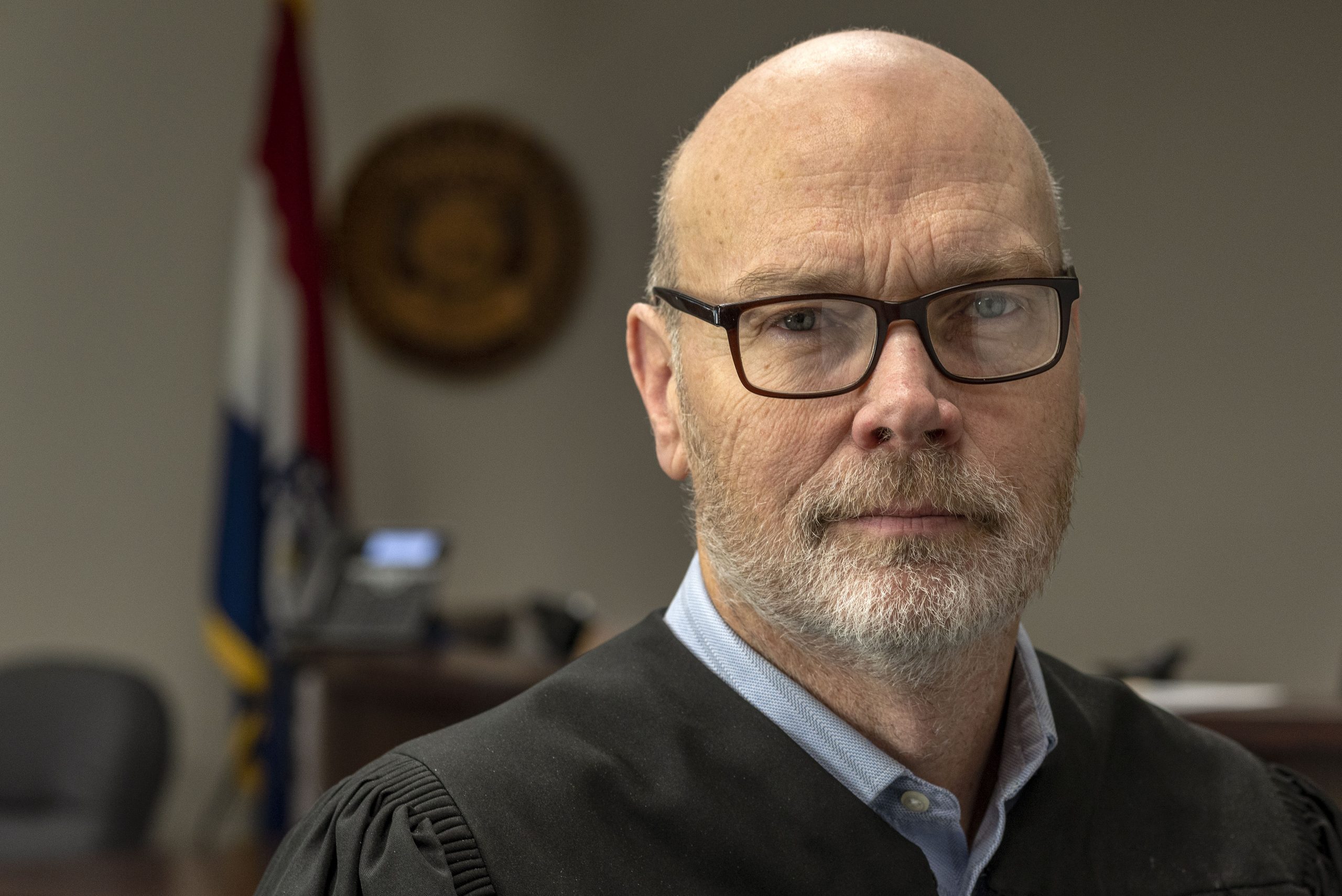When people talk about the trauma of the child welfare system, they are usually referring to the children, the bio-parents and even foster parents.
But, according to those who spoke at ‘Stories from the System’ event last week, employees of the Children’s Division are often deeply traumatized by what they experience on a daily basis.
“Our priority is to make sure that the children are safe,” said former Children’s Division caseworker and investigator Taylor Friedli. “As a social worker, we know that the best place for a child to be is with their parents.
“But, you know, we have to adhere to policies and state procedure, and we can’t take that risk if there’s too many risk factors,” she said, crying. “Our butt is on the line because if that kid dies tomorrow …”
The Stories from the System event was hosted by the Connecting Grounds Church and featured personal stories from Friedli, as well as a former foster kid, a foster parent who takes in teenagers and a mom who lost a child to the system.
Why care?
May is Foster Care Awareness Month. In Greene County, 386 children were placed in foster care at least temporarily in 2021. But advocates and service providers report that Missouri’s child welfare system is failing many of those it is intended to serve. People directly caught up in the system — including a former foster kid, a former caseworker, a bio-mom and a foster parent — shared the traumas and issues they’ve experienced.
Since May is Foster Care Awareness Month, the event was intended to spread awareness about the many challenges within Missouri’s child welfare system.
Friedli, who worked with Children’s Division from 2018 to 2021 and now volunteers at TCG’s Family Connection program, cried throughout her brief time on stage.
Family Connections is a program that offers a homey atmosphere staffed by trained volunteers where biological parents can visit with their children who are in foster care.
“I was diagnosed with anxiety,” she said. “After I left last year, I took some time and then started volunteering at the Family Connection center because it was really important to me because …
Friedli paused for a few moments, struggling to regain her composure. She apologized for not being able to talk and cry at the same time.
“During my time as a foster care case manager, (visits between bio-parents and their children) were really important to me,” she said. “But I couldn’t find the time to give the families I was working with what they deserved.”
Holly Madden, director of the TCG Family Connections, said Missouri Children’s Division employees don’t get the credit they deserve for being passionate and caring for the families and children.
“People who work at Children’s Division sometimes get really bad stigmas and have a really hard job,” Madden said, when introducing Friedli. “But I also think it’s important to hear the heart of someone who has wept over probably dozens of families and kids.”
Connecting Grounds Pastor Christie Love thanked Friedli for sharing her difficult story so that others could learn.
“Most people who have spent time as a caseworker walk away with some form of PTSD,” Love said to Friedli. “And the things that I know that you have wrestled with and seen, I just want to acknowledge that and hold space for that.
“We often focus on the trauma and the PTSD of our kids and our parents, and those are all huge,” Love continued. “But I also want to recognize that there’s a trauma element in the system itself for people who constantly day after day are seeing (these situations).”
Friedli spoke about the pressure of having a high number of kids and sibling groups on workers’ caseloads and the pressure to resolve cases in a relatively short time frame.
Madden said she routinely hears from caseworkers who say they are exhausted, burnt out and weary.
“I’ve lost track of the number of times I’ve gotten phone calls from caseworkers,” she said, “and they cried on the phone over cases and said, ‘This family didn’t deserve this. This parent didn’t deserve this. I feel so bad for them. I feel so bad for this child.’
“Those are the things I wish the community could hear,” Madden said. “There’s so much demand on our caseworkers, and there’s so much pressure, and the caseloads are growing. … There are not enough (caseworkers), and there are too many families. And that is a disservice to our families and our city. It’s a disservice to our kids that are in foster care.”
Woman who grew up in system now volunteers with foster kids
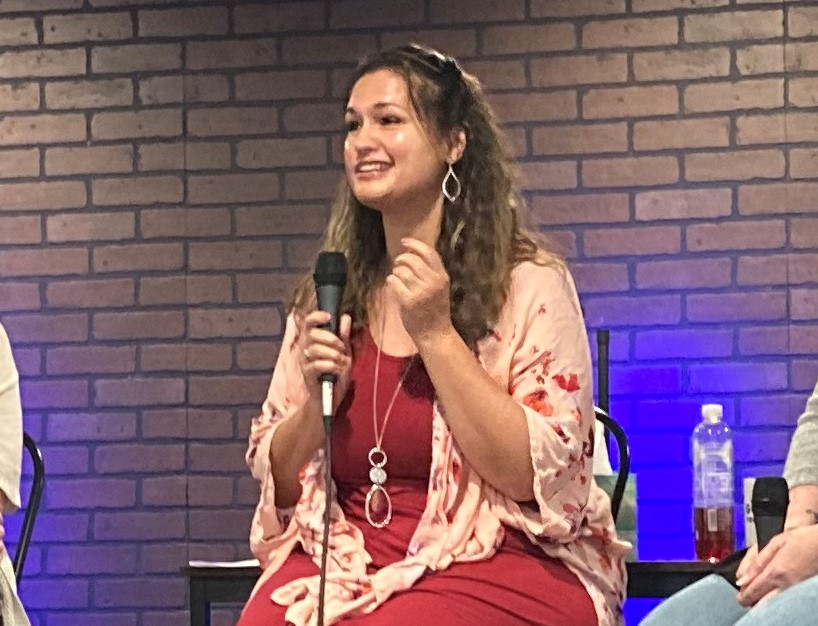
Eden Holt also spoke at the ‘Stories from the System’ event. Holt explained that she and her brother were taken into foster care when she was just 3.
Throughout their childhood, they experienced severe trauma, abuse and neglect, Holt recalled. They were adopted once, but that didn’t work out. She and her brother were separated for 11 years.
Her brother spent several years in a treatment facility in Arkansas, and she aged out of the system at age 18. Holt said she had to drop out of college because she got pregnant.
As a young, single mother, Holt said she found herself in “lots of precarious situations,” but was afraid to ask for help for fear the state would step in and take her child.
Holt now volunteers for Court Appointed Special Advocate (CASA) of Southwest Missouri. She serves as a CASA for a group of siblings in foster care. As a CASA, Holt said she talks with her kids about their case and whatever is happening in their lives. She said it’s important they be given an opportunity to have their voices heard and know someone is listening to them.
“I think that was really what I struggled with the most when I was a kid,” she said, “not knowing who I could trust, not knowing who I could talk to, not knowing who was going to listen even if I did talk to them. And so being that safe adult and safe advocate for my CASA kids is so important.”
Holt also volunteers with the Family Connections program as a trained visit supervisor. She called it a “beautiful program.”
“Had my mother at her young age, becoming a mother to four babies,” Holt wondered, “had she had these same services or same opportunities, that maybe our relationship would have been stronger.”
Bio-mom shares the grief of losing a child to the system
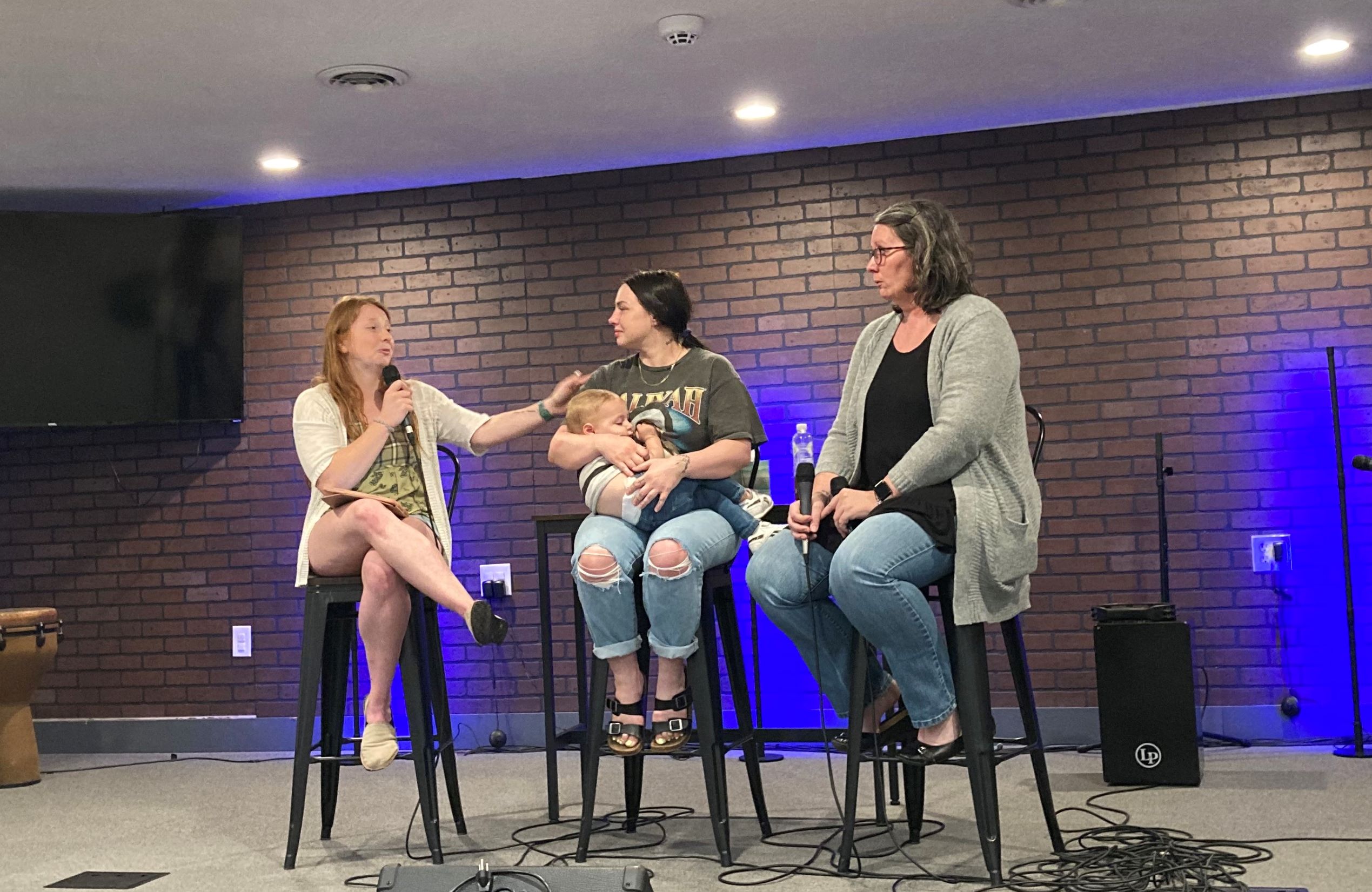
Alexis Perkins took a seat on stage, cradling her young son. The young mom was there to talk about her experiences with the foster care system.
Madden called Perkins “one of the bravest, strongest people I know.”
“Her story is really heartbreaking, and it’s really painful to talk about it,” Madden said of Perkins. “But she told me there was no reason she could turn this down, that being able to tell her story and advocating for families like hers is really important.”
Through tears, Perkins explained that she had been in a domestic violence situation a few years ago when she had her daughter.
“I was told to stay away from somebody and I just couldn’t,” she said, referring to Children’s Division workers. “I had gotten hurt again, basically woke up in the hospital to them saying they took my daughter.”
In an effort to be reunified with her daughter, Perkins said she was doing everything the caseworker told her to do: She was working, seeing a counselor and had her own apartment.
She talked about the pressure of having to satisfy all the requirements on a strict timeline, or face losing her daughter permanently.
Perkins said she wound up in another relationship that also turned violent, but she was afraid to call the police because she didn’t want her caseworker to know.
Eventually, Perkins’ timeline ran out on her daughter’s case, and the little girl was adopted. Perkins sobbed as she spoke about her daughter.
Madden commended Perkins on working hard to ensure her baby boy did not wind up in the system, all while grieving over losing her daughter.
“I am so proud of you,” Madden said, “You are a damn good mom, and you are working really hard for your little boy.”
Foster dad fills major gap in this community: He takes teens
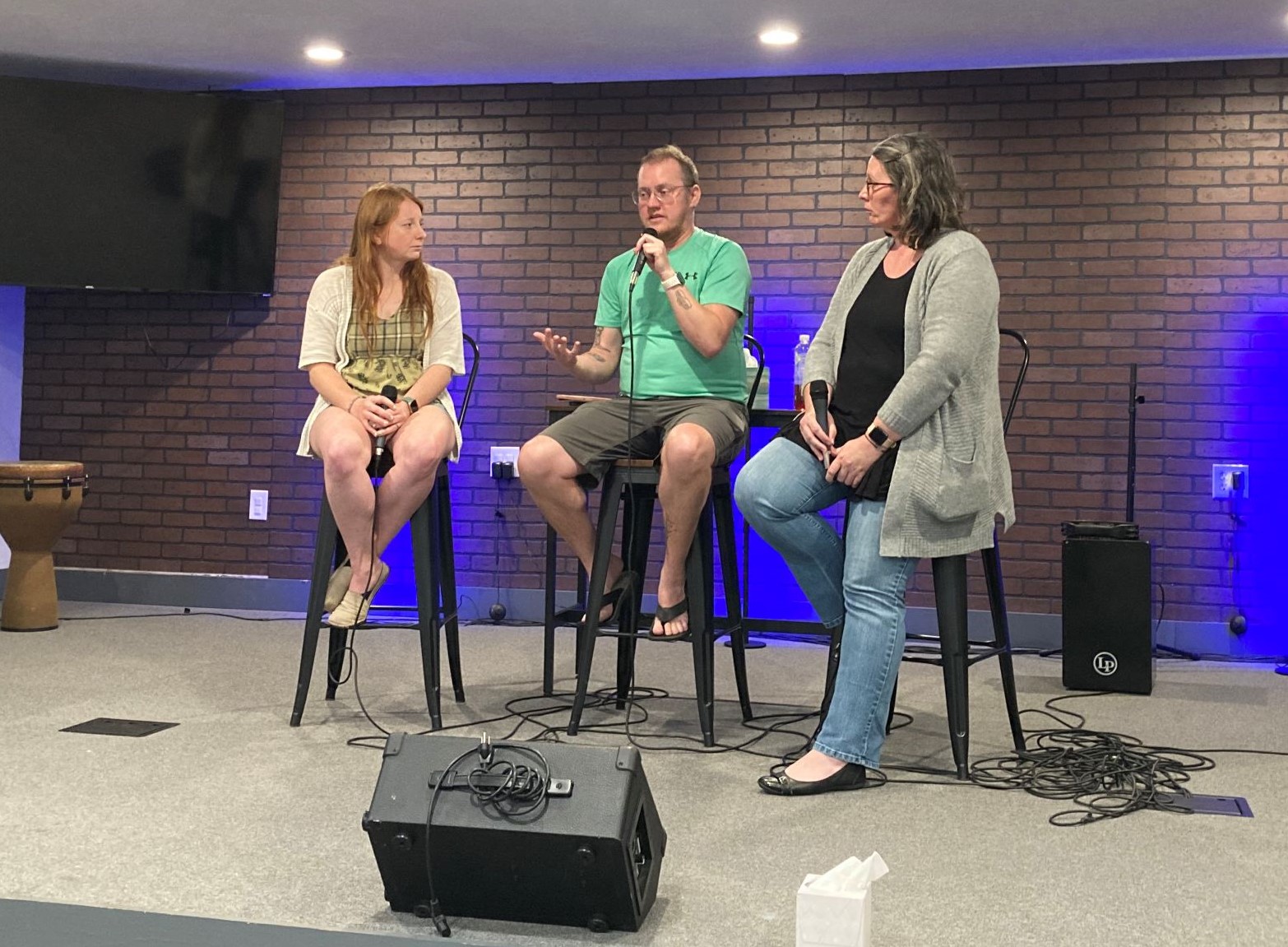
Ashley Quinn shared his experiences as a foster parent at the ‘Stories from the System’ event.
According to Madden, Quinn is filling a huge gap within the foster care system in that he opened his home to older kids and teenagers, and he is welcoming and affirming to those who identify as LGBTQ.
“Those kids are some of the hardest to place, especially in communities where there are no homes who are affirming of them,” Madden said. “There are caseworkers who sometimes tell these kiddos to just lie about it so they can stay in a safe house. That’s not safe.”
Quinn is currently fostering one teenager and providing temporary respite care for another. He said it’s unclear how long that second teen will need respite care.
Quinn, a queer and transgender man, said he was motivated to become a foster parent because of his own experiences in coming out to his family and knowing that kids sometimes wind up on the streets when they come out to their families.
“I was fortunate that didn’t happen to me,” Quinn said. “I can’t even imagine what it would be like to come out in high school. And fortunately for me, I just wasn't that self aware.”
Quinn recently posted some statistics on a private Facebook group for foster parents about the suicide attempt rate being more than 40 percent for transgender teens. But if that young person has a supportive adult in their life, it drops to around 4 percent — which is close to the normal rate for teens.
“I shared that in my group: What you can do as a foster parent for these kids is literally lifesaving,” Quinn said. “You are not necessarily going to know when a kid gets placed with you if they are or not. And they are not going to know whether or not you are a safe person to come out to. And so I was like, make sure you are open. Make sure your kid knows they can tell you.”
Quinn spoke about the constant changeover of caseworkers, the constant need to fill out paperwork and forms, plus the usual challenges that come with raising teenagers.
“Some people who have fostered have their own kids or their own kids grow up and then they foster,” he said. “These are my first tries at parenting, so I’m sorry to them for that. And you know, I’m a wing-it kind of person. I took the classes you have to take to be a foster parent and I had some ideas. But I’m also like — Ok, this isn’t working. We are going to have to try something new.”
Support from friends and his church family is a huge help, Quinn said.
“Right after I got the second kid in my home,” Quinn said, “people just started being like, ‘Hey, I have this extra casserole. Can I drop it off?’ And I’m like, yeah, sure. I don’t know what it is, but we will eat it. Thank you.”
Quinn also feels pressure from a looming deadline: the two kids in his home will soon age out of the system.
“She is 17. The other kid is 16. I’m like, I just met you and I feel I have to prepare you to be an adult,” Quinn said. “I feel like I’m way too hard on them. And at the same time, I’m like, ‘If you don’t learn these things quickly, it’s going to screw things up for you later on. I’m trying to help you, and I realize it doesn’t seem like that to you.’”


